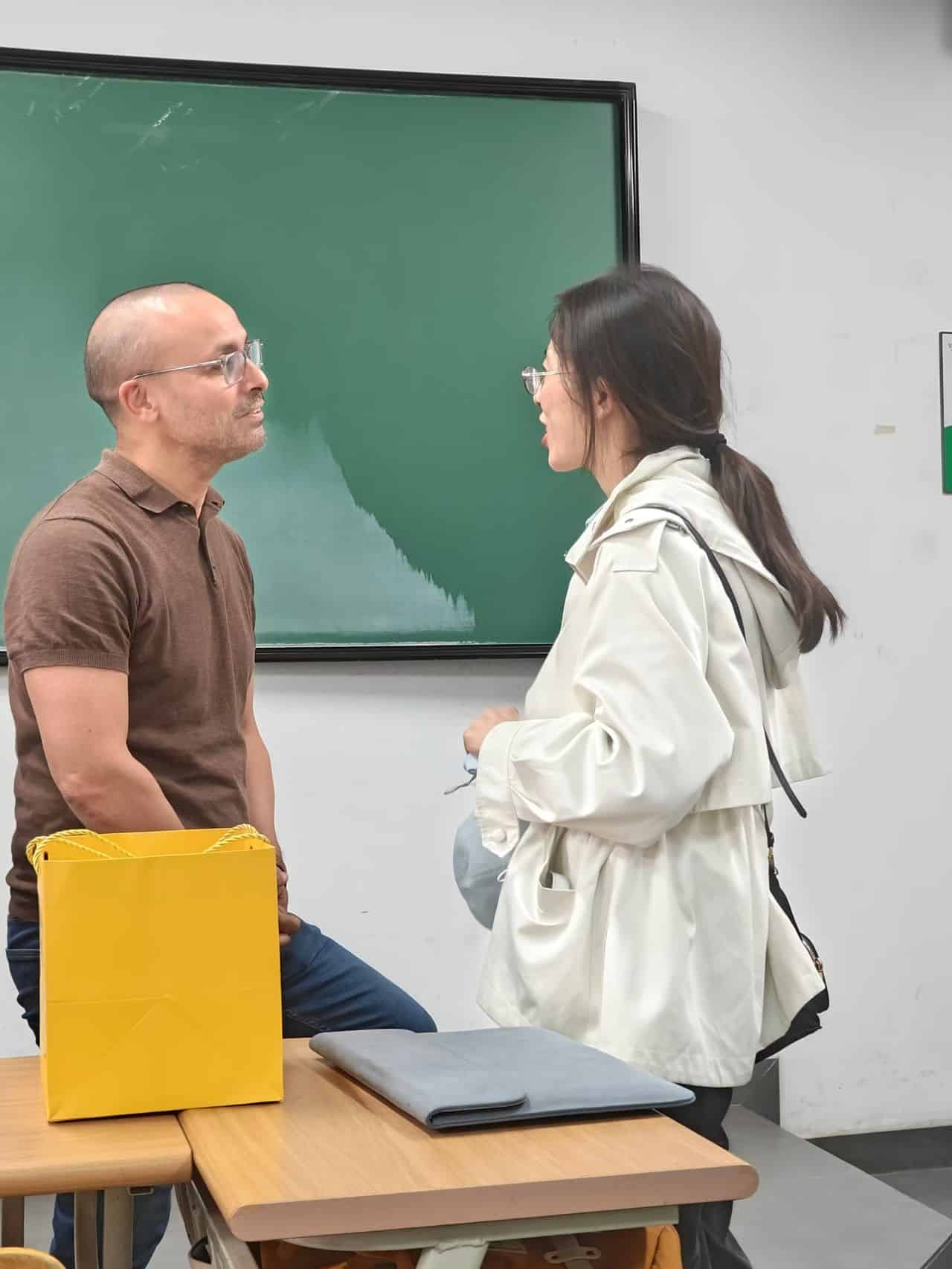Experience Feedback from Masterclass on Smart Building in China

In this page:
As part of a collaboration with a partner university in China, Karim Beddiar, professeur and researcher at CESI, had the opportunity to participate in an academic stay to lead a masterclass on Smart Building, a field he knows well as the head of research and innovation.
Introducing Karim and his professional background
Can you tell us a bit about yourself and your background?
I’m an engineer in civil engineering (BTP) and accredited research supervisor (HdR). I have been working at CESI for several years in various roles and I’m currently the Head of Research and Innovation at CESI Ouest. I have had the opportunity to lead and participate in several training and research projects, particularly in the field of Smart Building. I have authored numerous scientific and technical publications in this area, including several books. And it is in this context that I was invited to deliver a Masterclass in China at Tianjin University.
His experience at Tianjin University
Why did you decide to participate in this experience at Tianjin University?
It was the partner university that invited me as part of a teacher and researcher mobility program, with a focus on pedagogical and research exchanges between CESI and this university. I was happy to accept this invitation, especially since it was my first time going to China. It was an opportunity to discover a different academic system and share my knowledge of Smart Building.
How would you describe the atmosphere at this university and the cultural differences you observed?
The welcome at Tianjin University was very warm and positive. The atmosphere is characterized by a strong sense of rigor and discipline, both among the faculty and the students. Despite the language barrier, they showed great interest and engagement. While many of them were not fluent in English, this did not hinder communication. The cultural differences were noticeable, but rather than creating obstacles, they enriched the experience. The technological advancements in China are particularly impressive and this is reflected in their approach to Smart Building.
What are the main differences between the scientific approach in China and France, particularly in the field of Smart Building?
What I observed is that the Chinese approach to Smart Building is heavily focused on technology, particularly Artificial Intelligence. Chinese researchers have exceptional skills in this area and have developed very advanced algorithms for building management. This impressed me. However, my vision of Smart Building goes beyond just technology. It also involves user behavior, architecture and frugal technology. In China, the emphasis is more on the digital and technological aspects, but it is essential to add a human dimension to this approach.
What challenges did you encounter during your stay in China?
The main challenge was the language barrier. Outside of public places and major cities, English is not widely spoken, which sometimes made communication difficult. Additionally, there were organizational differences between cities. Another challenge was accessing European technological tools, as the Chinese rely on their own systems, requiring some adjustments.
What impressed you the most about Chinese culture during your stay?
What impressed me the most was the discipline and organization, as well as the technological advancements. For example, electric mobility is highly developed in China, with the majority of vehicles being electric, and most mobility on campus is done by bicycle. The students’ discipline, seriousness and ability to organize themselves also impressed me greatly. There is a strong culture of efficiency. On a more personal and anecdotal note, as a vegetarian, I had some difficulty finding suitable meals, as the cuisine is predominantly meat-based. I ended up losing a bit of weight, but that’s just a minor detail!
What advice would you give to young researchers or students interested in a research experience in China?
I highly encourage them to embark on this kind of exchange. China offers a unique experience, with an academic culture quite different from ours. It provides the opportunity to discover new research approaches, meet talented researchers and enrich oneself personally. It’s a great chance to collaborate with well-equipped universities and fully experience a culture that is very different from those in Europe.
I am very satisfied with this experience and would like to thank the teams at Tianjin University for their warm welcome. This has been an incredibly enriching experience and I hope it will lead to further collaborations between our two institutions.